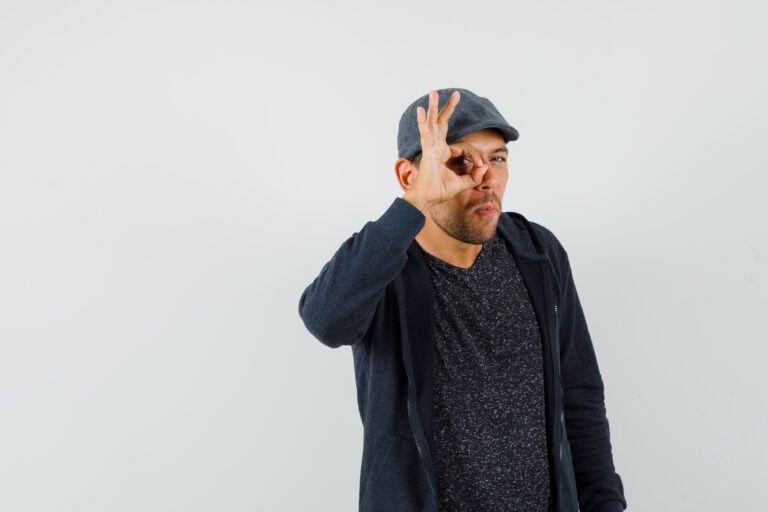Nosebleeds and sleep deprivation share an intriguing connection that often goes unnoticed. Whenever the body misses out on rest, blood vessels weaken, nasal passages dry out, and blood pressure rises—all factors that make nosebleeds more likely. Sleep apnea, stress, and poor circulation from exhaustion can further irritate delicate nasal tissues. Comprehension of this link helps explain why some people wake up to bloody pillows or struggle with frequent nosebleeds during demanding, sleepless periods.
What is Nosebleeds
Though nosebleeds can be startling, they’re usually not as serious as they appear. The nose contains delicate blood vessels close to the surface, making them prone to irritation and rupture.
Dry air, allergies, or even minor bumps can trigger nosebleeds through damaging these fragile nasal vessels. Blood might flow from one or both nostrils, frequently stopping quickly with simple pressure. Whereas most cases aren’t medical emergencies, frequent nosebleeds could indicate underlying issues like dryness or irritation.
Kids between 2 and 10 often experience them due to picking or rubbing their noses, while older adults face higher risks from thinner nasal tissues. Staying hydrated and using a humidifier can help prevent dryness, reducing the chances of nosebleeds.
The Impact of Sleep Deprivation on Health
Sleep deprivation doesn’t just leave people feeling tired—it weaves its way into nearly every part of the body, including the delicate balance of nasal health. Should the body miss out on rest, it can trigger high blood pressure, straining blood vessels and making them more prone to rupture. Dry air, common in sleep-deprived environments, can further irritate the nasal passages, increasing the risk of a nosebleed. Over time, poor sleep weakens the immune system, leaving nasal tissues vulnerable to damage. When frequent nosebleeds occur, it’s wise to seek medical attention to rule out underlying issues.
| Sleep Deprivation Effect | Impact on Nasal Health |
|---|---|
| Elevated blood pressure | Weakens blood vessels |
| Dry air exposure | Irritates nasal passages |
| Immune system decline | Slows tissue repair |
| Stress hormone increase | Raises rupture risk |
Can Lack of Sleep Cause Nosebleeds?
Why do some people wake up to find their pillow dotted with blood after a restless night? Lack of sleep can contribute to nosebleeds in several ways.
Poor sleep weakens blood vessels in the nose, making them more prone to irritation and rupture. Conditions like sleep apnea disrupt breathing, drying out nasal passages and increasing nosebleed risk. Chronic sleep deprivation also elevates blood pressure, further straining delicate nasal vessels.
Without enough rest, the body struggles to repair irritated tissues, leaving the nose vulnerable. Repeated nights of poor sleep might also trigger inflammation, worsening nasal sensitivity. Though nosebleeds alone don’t always signal sleep issues, frequent occurrences paired with exhaustion should prompt a deeper look. Examining sleep quality could help reduce the frequency of these unsettling episodes.
Other Factors That May Contribute to Nosebleeds
Dry air can irritate the nasal passages, making them more prone to cracking and bleeding. Certain medications, like blood thinners or nasal sprays, could also increase the risk of nosebleeds through affecting blood clotting or drying out the nose.
These factors, along with sleep deprivation, can create a perfect storm for frequent nosebleeds.
Dry Air Effects
As moisture decreases, the fragile lining within the nose can become cracked and aggravated, paving the way for nosebleeds. Low humidity dries out nasal blood vessels, making them more prone to rupture, especially as blowing your nose or exposed to dry air for long periods. Sleep deprivation can worsen this, as tired bodies struggle to maintain proper moisture levels.
Indoor Heating/Cooling: Artificial climate control strips moisture from the air, increasing pressure on delicate nasal tissues.
Nighttime Breathing: Mouth-breathing during sleep accelerates drying, leading to morning nosebleeds.
Environmental Factors: Cold, arid climates or high altitudes often have low humidity, irritating nasal passages.
Prevention Tips: Humidifiers and nasal moisturizers help combat dryness, reducing the risk of nosebleeds and sleep disruption.
Staying hydrated and monitoring indoor humidity levels can provide relief.
Medication Side Effects
Have you ever pondered whether your medications could be the cause of those sudden nosebleeds? Blood thinners, aspirin, SSRIs, and corticosteroids are common culprits, as they can thin nasal tissues or reduce clotting.
Even everyday asthma inhalers or some antibiotics might trigger issues. CPAP machine users could notice dryness, leading to irritation and bleeding. Alcohol and nicotine dehydrate nasal passages, making them prone to cracks. Medication-related factors often fly under the radar but play a big role.
Should nosebleeds happen frequently, a healthcare provider can review prescriptions and adjust doses or suggest alternatives. Lifestyle adjustments—like hydration or nasal sprays—may also help counter medication side effects. Small changes can make a big difference in preventing those unexpected nosebleeds.
Nosebleeds as a Possible Indicator of Underlying Health Issues
Frequent nosebleeds can sometimes signal more serious health problems, like blood disorders or vascular issues, and shouldn’t be disregarded. Certain medical conditions, including high blood pressure or nasal tumors, could trigger recurrent bleeding, making it crucial to recognize patterns.
Should nosebleeds transpire frequently, persist excessively, or feel unusually heavy, consulting a physician can help uncover any concealed causes.
Frequent Nosebleeds Warning Signs
While occasional nosebleeds are common and often harmless, those that happen frequently or heavily can signal something more serious going on in the body. Persistent or severe nosebleeds might indicate an underlying health issue, especially if they occur without obvious Causes of Nosebleeds like dry air or minor injury. Those at higher risk of experiencing nosebleeds should pay attention to warning signs that demand medical evaluation.
- Frequency: Nosebleeds occurring multiple times a week or lasting longer than 20 minutes.
- Severity: Heavy bleeding that soaks through tissues or doesn’t stop with pressure.
- Associated symptoms: Dizziness, fatigue, or unexplained bruising alongside nosebleeds.
- No clear trigger: Bleeding without known irritation or trauma.
When these signs appear, it is crucial to seek medical advice to rule out serious conditions.
Medical Conditions Linked to Nosebleeds
Nosebleeds can occasionally suggest deeper health issues, particularly if they manifest frequently or seem exceptionally profuse. Elevated blood pressure often contributes to nosebleeds, as fragile nasal vessels rupture under strain.
People experience nocturnal nosebleeds more commonly with conditions like hypertension or clotting disorders. Chronic use of nasal sprays containing irritants also increases the risk of nosebleeds by drying out the nasal lining.
Frequent nosebleeds may hint at blood disorders such as hemophilia, liver disease, or even rare vascular abnormalities. Less commonly, they could signal nasal tumors, especially if bleeding is persistent. Medical attention helps uncover underlying causes, ensuring timely intervention.
While not always serious, recurrent episodes warrant evaluation to rule out systemic conditions that might otherwise go unnoticed.
When to Seek Professional Help
Many people disregard occasional nosebleeds as nothing serious, but should they begin happening regularly or persist longer than typical, it could be time to see a medical professional. Recurrent nosebleeds, especially nighttime nosebleeds, might signal underlying medical conditions that need attention. Children and older adults are more vulnerable, as common causes like dry air or minor injuries can obscure more serious issues.
- Frequency & Duration: Seek help if nosebleeds occur multiple times a week or last over 20 minutes.
- Unusual Symptoms: Dizziness, fatigue, or excessive bleeding alongside nosebleeds warrant a healthcare provider’s evaluation.
- Age & Risk Factors: Persistent cases in kids or seniors may indicate blood disorders or vascular problems.
- Prevention Failure: If home remedies don’t stop recurrent nosebleeds, professional diagnosis is essential.
Ignoring these signs could delay treatment for hidden health concerns.
Overview of Nocturnal Nosebleeds
Waking up to a nosebleed in the middle of the night can be alarming, especially as blood stains the pillow or sheets. Nosebleeds, or epistaxis, are a common occurrence, often happening when the delicate tissues inside the nose dry out or become irritated.
During winter months, cold air and indoor heating can worsen dryness, making seasonal variation a key factor. Environmental factors like low humidity or excessive nose blowing also play a role. While most cases are minor, the sudden appearance of blood can be unsettling.
Comprehending why these nighttime episodes happen helps reduce anxiety. The nasal passages are more vulnerable during sleep, as people may unconsciously scratch or rub their noses. Identifying these triggers can make the experience less frightening and easier to manage.
Causes and Risk Factors for Nosebleeds During Sleep
Though the nose is built to handle minor irritations, nighttime nosebleeds can catch anyone off guard, leaving them puzzling over what went amiss. Several factors contribute to nosebleems during sleep, from environmental triggers to underlying health issues.
- Dry air: Low moisture in the air, especially in summertime or high altitudes, dries nasal membranes, making them prone to cracking.
- Chronic rhinosinusitis: Inflammation weakens nasal tissues, increasing risk factors for bleeding when you need to blow your nose.
- Sleep-disordered breathing: Conditions like sleep apnea strain nasal vessels, worsening Management of epistaxis challenges.
- Blood pressure & clotting: Hypertension or disorders thin vessel walls, a focus in Otolaryngology-Head and Neck Surgery.
Understanding these causes helps in Clinical Practice, guiding better prevention and care decisions.
Diagnosing the Cause of Nosebleeds During Sleep
Tracking nosebleeds through a sleep diary helps doctors notice patterns linked to nighttime episodes.
A medical examination often includes checking the nose for unusual structures or signs of irritation that could cause bleeding.
Blood tests or imaging scans can reveal concealed issues making nighttime nosebleeds more probable.
Sleep Diary Tracking
Ever ponder why nosebleeds seem to strike more frequently in the evening? Keeping a detailed sleep diary can uncover patterns behind these unsettling episodes. Blood on your pillow or dry nasal passages could hint at causes like low room humidity or allergy symptoms. Documenting potential triggers—such as medication use or environmental factors—helps identify what’s disrupting sleep and irritating nasal tissues.
- Track timing: Observe when nosebleeds occur, duration, and severity.
- Monitor environment: Record room humidity levels and air quality.
- Log health factors: Jot down allergy flare-ups, colds, or medication changes.
- Stay consistent: Daily recordkeeping reveals trends a doctor can analyze.
This methodical approach turns vague worries into actionable insights, bridging the gap between confusion and clarity.
Medical Examination Process
Whenever sleep diary tracking points to recurring nighttime nosebleeds, the next step involves a medical examination to pinpoint the root cause.
A healthcare professional will take a detailed history, checking for factors like dry air, allergies, or injuries that could contribute to nosebleeds. They might examine the vessels in the nose using a small camera (nasal endoscopy) to spot irritation or abnormalities.
Blood tests can reveal underlying health issues, such as clotting disorders or high blood pressure, potentially leading to frequent bleeding. In rare cases, imaging scans help rule out structural problems.
This thorough approach guarantees the right treatment—whether it’s simple steps to stop a nosebleed or addressing a deeper condition. Consulting a healthcare provider promptly prevents complications and brings peace of mind.
Prevention and Management of Nocturnal Nosebleeds
Several simple steps can help prevent and manage nocturnal nosebleeds, making nights more tranquil and worry-free. Dry climates and indoor heating can contribute to nasal irritation, but using a humidifier adds moisture to the air, helping mitigate dryness in the nasal cavity. Saline nasal spray keeps the lining hydrated, reducing the likelihood of cracks or bleeding.
- Gentle care: Avoid picking or blowing the nose too hard, as this can trigger bleeding.
- Hydration: Drinking plenty of water maintains moisture in the nasal passages.
- Humidify: A bedroom humidifier counteracts dry air, especially in winter.
- Saline solution: Applying saline spray at least once daily soothes and protects delicate tissues.
For persistent issues, seeking medical attention guarantees underlying causes are addressed.
When to Seek Medical Attention
While prevention helps manage most nosebleeds, there are instances where home care isn’t sufficient. Frequent episodes—like multiple times a week—or bleeding lasting beyond 30 minutes signal a potential risk requiring medical evaluation.
Those experiencing a nosebleed alongside dizziness, trouble breathing, or severe headaches should seek help immediately. Indoor heating or dry air can make blood vessels prone to rupture, but underlying issues like blood disorders demand professional attention.
Sleep Medicine experts remark that exhaustion weakens the body, worsening nosebleeds. Addressing potential causes promptly helps prevent complications. People on blood thinners or with recurring episodes must work towards identifying root problems. Ignoring severe cases risks worsening blood loss, so timely care ensures safety and long-term relief.
Conclusion
The blood vessels in the nose, thin as stretched silk, could fray whenever exhaustion takes hold. Sleep deprivation weaves a fragile web, rendering those delicate passages more susceptible to unexpected rupture. Though not always alarming, nosebleeds paired with fatigue whisper a warning—your body craves rest. Heeding these quiet signals can prevent the crimson tide, proving sometimes the body’s wisdom flows as clearly as the blood it spills.





